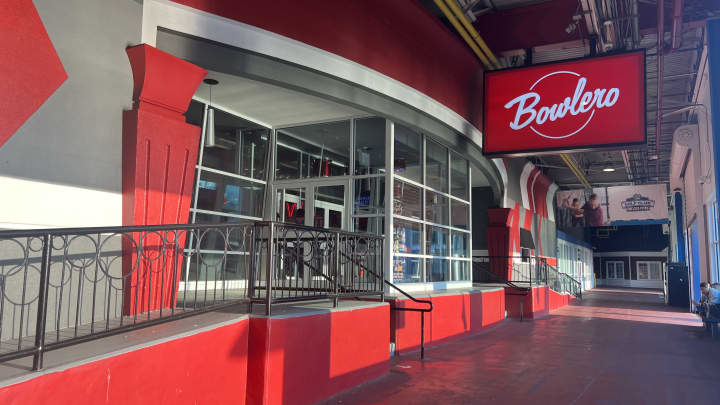Dozens of former employees who allege they were terminated from Bowlero due to their age or in retaliation are preparing to file a lawsuit against the bowling chain after the U.S. Equal Employment Opportunity Commission (EEOC) concluded its investigation, as stated by the lawyer representing the claimants on Monday.
Bowlero, recognized as the world’s largest owner and operator of bowling centers, has been under scrutiny by the EEOC since 2016 regarding claims from over 70 former employees who assert they were unjustly dismissed, as previously revealed in the company’s securities filings.
The employees purported that Bowlero fired them based on their age during the company’s transition from traditional bowling alleys to more upscale venues with enhanced food and drink offerings, according to complaints made to the EEOC. Bowlero has refuted these allegations.
The company, which went public in late 2021 through a special purpose acquisition company (SPAC), has been among the SPAC boom’s success stories. It possesses two major bowling brands—AMF and Lucky Strike—and operates over 300 bowling centers across North America, as of the latest available data in July. Bowlero’s annual revenue surged nearly threefold from $395 million to $1.06 billion between 2021 and 2023, according to company filings. Bowlero’s stock has experienced a 21% decline year-to-date as of Monday’s close.
In its fiscal third-quarter earnings release and quarterly securities filing on Monday, Bowlero revealed that the EEOC had concluded its investigation and decided not to pursue legal action.
“The Company has received positive updates on the status of the age discrimination claims that had been pending with the EEOC … the EEOC issued Closure Notices for the individual age discrimination charges that had been filed, in most cases, many years ago with the EEOC,” Bowlero stated in its press release. “The notices provide the claimants, as a matter of course, with an individual right to sue.”
Bowlero disclosed that it had received letters from the EEOC stating that while the cases were closed, it didn’t absolve the company of any alleged wrongdoing.
“By terminating the handling of this case, the Commission does not certify that [Bowlero] is in compliance. Also, our termination of the investigation does not affect the rights of any aggrieved persons to file a private lawsuit or the Commission’s right to sue later or intervene later in a private civil action,” the EEOC’s letter, sent Friday, stated.
During the earnings call with Wall Street analysts later on Monday, Bowlero executives emphasized that the EEOC investigation was concluded, alleviating a distraction.
“Over eight-and-a-half years, the company has vigorously denied and contested the false allegations made against it,” CEO Thomas Shannon remarked. “We are pleased to report these very positive developments on behalf of our shareholders.”
However, Daniel Dowe, the attorney representing the claimants, stated that the case remains active but will proceed differently.
The EEOC’s decision allows the former employees to pursue their own lawsuits, and Dowe intends to file a single lawsuit on behalf of more than 70 former employees. He anticipates seeking monetary damages related to the case.
Previously, the EEOC found reasonable cause in 58 of the complaints against Bowlero, while the rest were still under investigation when the agency closed its case, according to Bowlero’s securities filings and Dowe. Those with pending cases with the EEOC also have the right to sue and are among the potential plaintiffs Dowe represents, he confirmed.
Bowlero disclosed in its filings that the EEOC’s investigation also found reasonable cause that Bowlero had engaged in a “pattern or practice” of age discrimination since at least 2013, which Bowlero denies. The EEOC’s pattern or practice investigation was also closed, Bowlero stated.
When the EEOC determines reasonable cause in a complaint, it implies it believes discrimination occurred. The agency typically reaches this conclusion in only a small fraction of cases annually, according to EEOC data.
Per EEOC protocol, when it establishes that discrimination occurred, it endeavors to resolve the matter between the employer and the victim. If no resolution is reached, the EEOC must decide whether to litigate against the employer—an issue that the EEOC’s commissioners must vote on.
Dowe stated that he requested the agency close its case last month to enable his clients to proceed with their lawsuit. He expressed satisfaction that the matter was now ready for private action.
“The investigations were thorough and deep, and they resulted in 58 to zero decisions in our favor, so our clients felt we should let the EEOC do its work,” Dowe said.
He emphasized that age discrimination is particularly egregious, as individuals nearing the end of their careers face limited options for recourse. He plans to seek $80 million in damages, plus legal fees, in the lawsuit against Bowlero. As of March 31, Bowlero had approximately $212.4 million in available cash and cash equivalents, according to its quarterly securities filing. Dowe has until mid-July to file the lawsuit.
Bowlero’s attorneys, Alex Spiro and Hope Skibitsky at Quinn Emanuel law firm, expressed satisfaction with the EEOC’s decision and vowed to contest any claims filed by the former employees.
“Bowlero will defeat those claims,” the attorneys affirmed. In previous statements, they denied the allegations against Bowlero.
Separately, in a related matter, a request from former Bowlero executive Thomas Tanase to countersue the bowling chain for allegations of extortion and retaliation was denied in Virginia federal court last week. Tanase’s attorneys previously indicated that if the request is denied, the lawsuit can and “likely will” be filed as a new action. Bowlero also denies Tanase’s claims.
Tanase’s attorneys did not immediately respond to a request for comment.















































